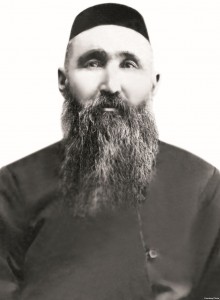 ASTANA – After 80 years, the manuscripts of poet and thinker Shakarim Kudaiberdiyev were returned to Kazakhstan, according to channel 24.kz. Despite the fact that his name was only allowed to be heard again in the late 1980s, after years of neglect there were still many gaps in his biography. The miraculously-survived writings found in China will help fill them.
ASTANA – After 80 years, the manuscripts of poet and thinker Shakarim Kudaiberdiyev were returned to Kazakhstan, according to channel 24.kz. Despite the fact that his name was only allowed to be heard again in the late 1980s, after years of neglect there were still many gaps in his biography. The miraculously-survived writings found in China will help fill them.
Shakarim’s manuscripts were finally returned to their historic homeland because, in the 1930s, not only Shakarim, the descendant of Abai Kunanbai, but also his children were persecuted by Soviet authorities.
Shakarim was shot by NKVD secret police in 1930s and his body was dumped in an unmarked grave only to be rediscovered decades later.
Ziyat, his youngest son and other relatives wereforced to leave their homes and go to Altai. They then left their homeland and settled in China. There he was actively engaged in educational work; his works were printed in the newspaper “Xinjiang Altai”and he started to communicate with activists of the Alash movement. Later he moved to Urumqi, where he first discussed his father’s manuscripts.
“There was a man named Karim Duisebayev who came from Kazakhstan. Ziyat entrusted him with the works of his father, which were most dear to him. Before leaving he said, ‘I’m going to Urumqi. There are very few Kazakhs. And you stay here, where many of our compatriots live. This is the manuscripts of my father. It will be safer to leave them here’,” said writer and poet Koben Askaruly.
Duisebayev did not keep the priceless papers for very long, as he was soon persecuted. However, during the last month before the exile he managed to give them to Askar Tatanaiuly, one of the founders of Kazakh prose in China, from whom Shakarim’s works were passed into the hands of his son, Koben.
The chronicles of Kazakh, Turkish and Kyrgyz khans described in the writings of Shakarim, as well as his lyrical and poetic thoughts immortalised in manuscripts, were kept for more than half a century in the family of the Chinese Kazakhs.
Shakarim was engaged in politics andelected to the township rulers. He became seriously engaged in creativity only in 1898, after he was 40 years old. He began studying eastern and western literature and familiarised himself with the legacy of such Eastern thinkers and poets as Hafiz, Fizuli and Navoi, as well as the works of Byron, Pushkin and Tolstoy. His translation of Hafiz into Kazakh remains unmatched in skill and technique, as well as a brilliant translation of Pushkin’s story “Dubrovsky.”He mastered the Arabic, Persian, Turkish and Russian languages. In 1903, he was accepted as a member of the West Siberian Branch of the Imperial Russian Geographical Society.
